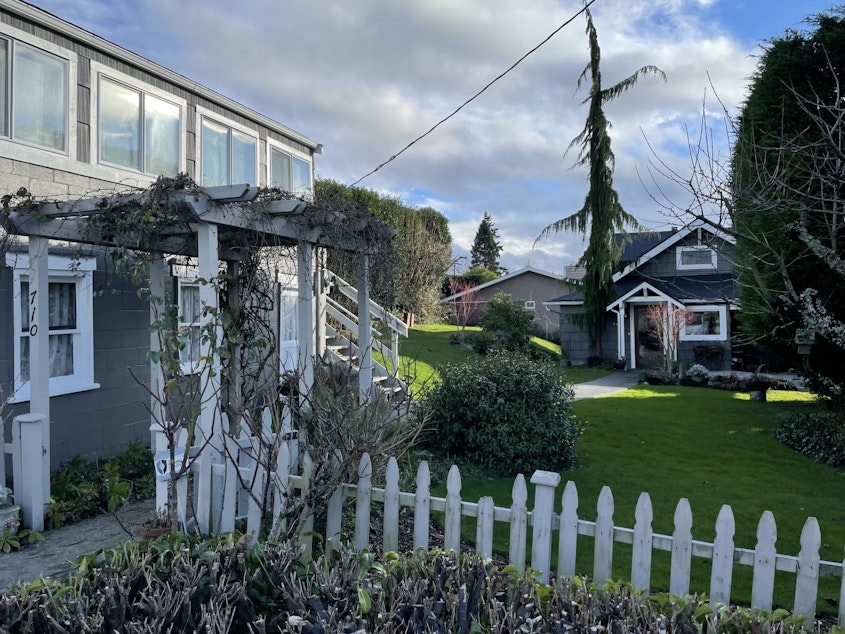Why Washington state's missing middle housing bill died

The "missing middle" housing bill, which would have opened up single family zones to six-unit apartment buildings near transit, has died in the Washington State Legislature.
As it passed through committees, the bill was whittled down. But those compromises weren't enough for it to pass.
Housing advocates really thought the bill had a shot this year.
Other legislators, such as Representative Nicole Macri had brought up similar bills in years past. This year's bill had more steam than any of those.
But cities rose up against it. The Association of Washington Cities represented the views of these cities, most of which didn't want to give up local control over zoning decisions.
Even in Seattle, Mayor Bruce Harrell’s support for the bill was tepid at best.
“I’m not opposed to it at all. There are just some concerns we’ve asked our teams to ask the legislators about to make sure the community have the level of input that they want,” he said at a news conference earlier this month.
Sponsored
A recent Sightline poll suggested most Washingtonians were in favor of the bill.
But bills are not static objects. As they move through the Legislature, they pick up amendments, and sometimes change appearance completely.
It’s like a dress shirt straight out of the dryer. It may have socks stuck to it. It may have turned completely pink, due to being washed with a red sweater.
In one committee, the bill picked up language from another, dead bill, favored by the bill’s only Republican co-sponsor, Representative Andrew Barkis. Barkis says this work was done in coordination with Representative Jessica Bateman, the bill’s prime sponsor.
In another committee, Democratic Representative Gerry Pollett called the idea of allowing six-plexes within a half mile of transit a “no-go for so many people,” and took those out. Instead, he proposed that four-plexes would be the maximum density, and only within a quarter mile of transit.
Sponsored
Who’s ultimately responsible for the bill’s death depends on who you ask.
Pollett says it’s thanks to Republicans, who he says ran out the clock.
Barkis says the bill’s failure is thanks to Pollett, whose changes he says “took all the air out of the room … Once you start amending what had already been agreed upon, it throws a wrench into it, and all of a sudden, this person doesn’t like it, this person’s not going to vote for it, and it just becomes a mess.”
RELATED: Why it's so hard to change rules for single family zones in Washington
These events reveal the delicate forces that must align perfectly to support a bill like this. On the right, Barkis says he had realtors and builders lined up. On the left, Bateman had support from housing advocates. And in the middle, Pollett tried to win support from skeptical cities.
Ultimately, not everyone could agree on the best path forward. Bateman says that with a longer legislative session, the differences could have been resolved.
Sponsored
Pollett says the unrelated backyard cottage bill that passed should be celebrated, as it fulfills some of the intent of the missing middle bill. After all, backyard cottages, like duplexes, divide the high cost of land among multiple parties.
But Barkis says he voted against the backyard cottage bill – despite pushing for backyard cottages for three years – because of provisions which outlaw the use of backyard cottages as AirBNBs. Barkis says people should be able to earn money from their property as they see fit.



